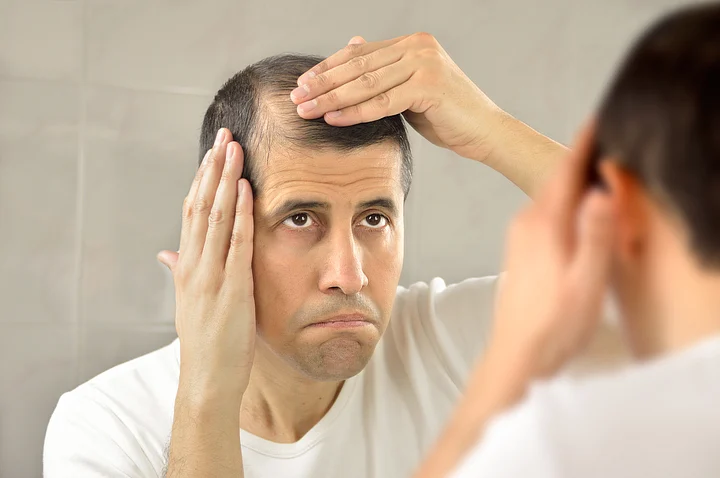While men and women are both susceptible to most general medical conditions, experts believe that there can still be noteworthy distinctions between genders when it comes to cause and treatment.
Hair fall is one such common concern where the experience can be quite different.
Medically speaking, men are genetically, hormonally, and behaviourally at a disadvantage when it comes to hair fall. Men also start losing hair earlier than women, often hitting peak hair loss in their early thirties. It starts with a receding hairline: hair loss along the temples first and then finally on the crown of the heads, until the need for a comb completely disappears.
Structurally, there is no difference in the hair of men and women. If left undisturbed, both will grow at almost the same rate. Factors that cause hair fall in both can be external – lifestyle, tradition, and cultural factors, or internal – that is, due to genetics or hormonal changes.
How does hair fall in men differ from that in women?
The main type of hair fall in men is called Male Pattern Baldness (MPB) and in women, Female Pattern Hair Loss (FPHL). Men lose more hair and in a well-defined pattern starting from the temples, whereas women often experience loss in the volume of hair.
So, what causes hair fall in men? And how is it different from those that affect hair loss in women?
A key factor can be attributed to the hormonal differences between the two.
The Testosterone Factor
One key genetic difference that ends up affecting men is DHT (Dihydrotestosterone), an androgen or a hormone that helps form male sexual characteristics during puberty. DHT is derived from testosterone, which is present in the female body as well, although in relatively smaller quantities.
DHT is a major driving force behind MPB (Male Pattern Baldness), but the same causes hair fall in women at a much later stage in their lives.
What Causes Hair Fall in Women?
Most women also lose their hair due to hormonal imbalances that occur as they go through pregnancy, childbirth, and menopause. The oestrogen hormone plays a major role in these phases and difference in hormonal levels during these life events can impact hair health.
Lifestyle factors such as tightly pulling or tying back their hair can also lead to traction baldness in women – which is not very common for men. Women can also experience hair fall if their perms are not done properly. Hyper or Hypothyroidism, which is more prevalent in women, can also result in hair fall.
Other choices like what we eat, how often we exercise, also have an impact on the general health of our hair, however, these are widely considered common to both men and women.
Autoimmune and Other Diseases
Immunity is the body’s ability to combat diseases by acting against the microorganisms that cause them. In rare cases, the foot soldiers of immunity, aka the antibodies, end up attacking the body’s cells. This results in an autoimmune response and, quite often, it leads to hair loss.
Autoimmune diseases have no definitive cure, so hair fall caused by them cannot be treated. In addition, diseases like Lupus, Crohn’s, HIV, Syphilis, and certain thyroid problems are known to cause hair fall. In some of these cases, the hair is restored during treatment.
Trauma induced hair loss
Traumatic, life-altering events, such as an accident, a sudden and unexpected loss, can result in temporary hair loss in both genders. Since men and women respond to these situations differently, the resulting hair loss pattern is also expected to be different.
Knowledge and Care: Treating Hair Loss
Men are more prone to genetic hair fall, whereas women experience balding patterns quite late, often in their 60s. Women also have a stronger tendency to take care of their hair.
While hair fall factors, like genetics, cannot be reversed, some conditions are treatable if detected in time. There are various surgical and allopathic remedies to treat hair fall. For those who prefer a less-invasive approach can opt for Ayurveda, which offers effective and natural ways to combat hair loss.
(This article is published on behalf of Marico Industries Ltd.)
(At The Quint, we question everything. Play an active role in shaping our journalism by becoming a member today.)
